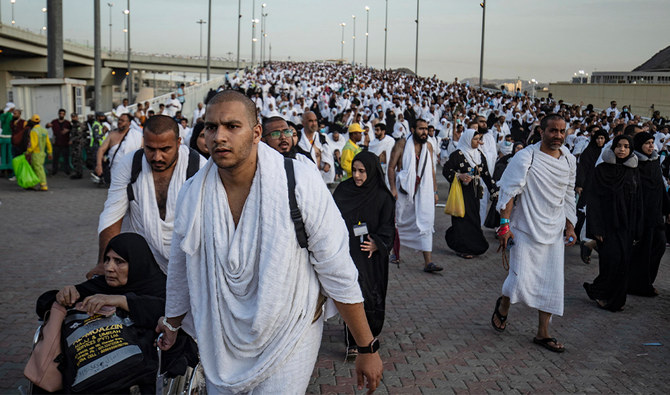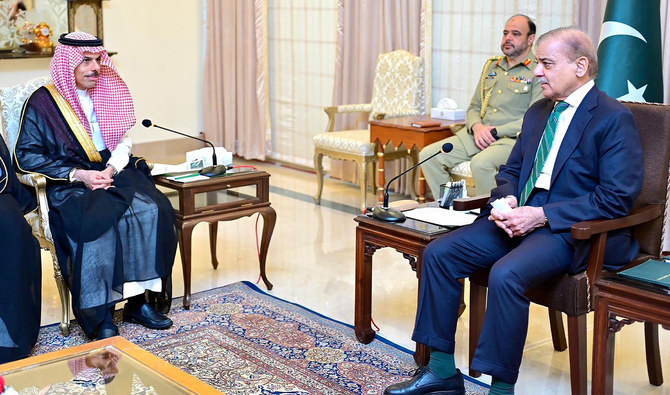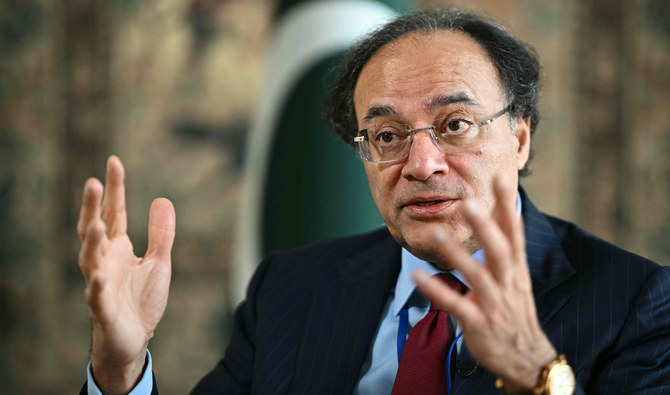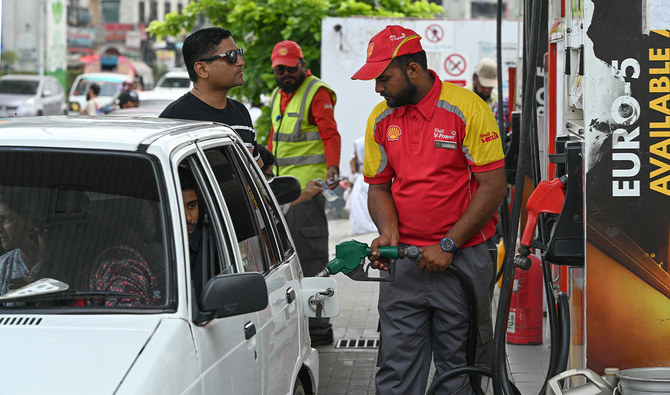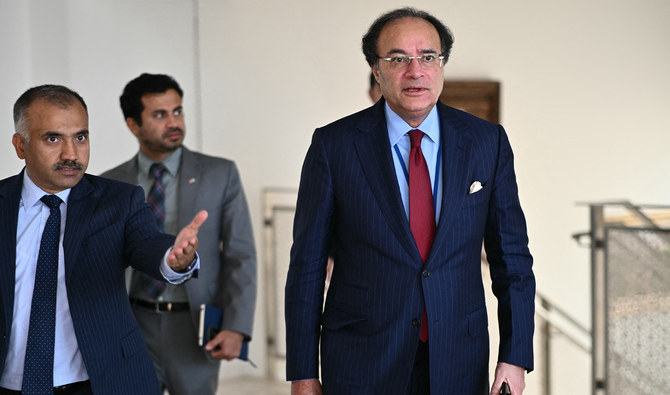MAKKAH: A large number of Pakistani pilgrims performed the “stoning of the devil” ritual at Jamarat after spending the night at Muzdalifah and were now beginning to change into regular clothes to celebrate Eid Al-Adha after a successful completion of Hajj, a Pakistani official in Makkah said on Saturday.
The stoning ritual requires pilgrims to throw pebbles at three different columns to symbolically reenact Prophet Ibrahim’s (Peace Be Upon Him) act of resistance against the devil while trying to sacrifice his son to fulfil a commandment of God.
Over the years, Saudi authorities have built an elaborate infrastructure in the area to ensure a smooth flow of pilgrims to avoid any untoward incidents.
“A majority of Pakistani pilgrims started moving to Jamarat after sunrise,” Ibrar Mirza, director-general of Pakistan’s Hajj mission in Makkah, told Arab News.
“My estimate is that about 70-75 percent of Pakistanis have performed the ritual and the movement of the remaining pilgrims toward the area is now very thin.”
Mirza said many pilgrims had started celebrating Eid Al-Adha, adding the ritual animal sacrifice began in the morning and would continue for the next few hours.
“We went to Jamarat at 6:30 in the morning and performed the stoning ritual at 6:35,” Fayyaz Mahmood, a Pakistani pilgrim from Islamabad, told Arab News. “We did not face any problem when we went there since the place was not crowded. Now, we have come to [the Grand Mosque in] Makkah and are waiting for the message about animal sacrifice. After that, we will have our hair cut [to mark the end of the Hajj].”
Over 83,000 Pakistani pilgrims offered their afternoon prayers at Saudi Arabia’s Masjid-e-Nimrah on Friday before gathering around the ‘Mountain of Mercy’ in Arafat, where Prophet Muhammad (Peace Be Upon Him) delivered his Farewell Sermon while performing the pilgrimage centuries ago.
The Hajj sermon this year highlighted the significance of respecting other religions and their followers. It emphasized the necessity of closely following the teachings of Islam to avoid divisions within Muslim communities across the world.
In the evening on Friday, Pakistani pilgrims started leaving Arafat for Muzdalifah, situated about seven kilometers away, where they offered evening prayers and spent the night.
“Our heart is content,” Manthar Ali Odho, another Pakistani pilgrim, told Arab News, before leaving for Muzdalifah. “May Allah bring all members of the Muslim ummah to this place and allow them to perform the pilgrimage of the holy sites.”
Arsal Khan, who came from Karachi, praised Saudi authorities for making elaborate arrangements for the annual pilgrimage.
“The Saudi government has improved [the arrangements],” he said. “No one got uncomfortable here,” Khan said. “We came here as the guests of God and were also treated like that.”



